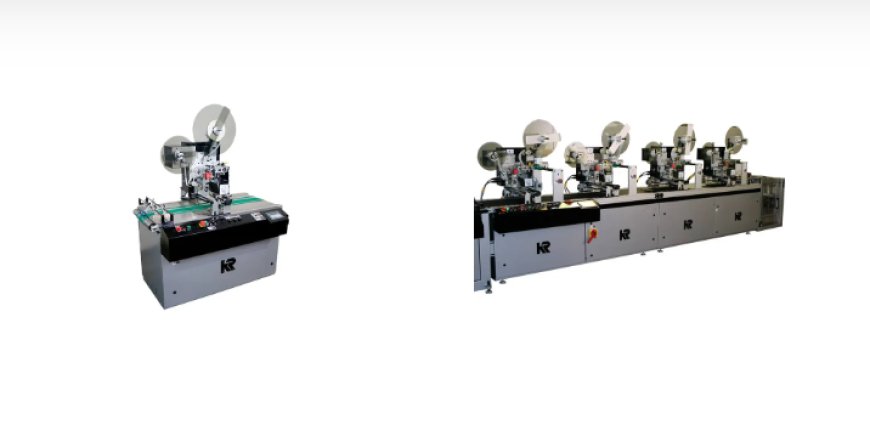What Is a Label Applicator Machine? Types, Benefits, and Industrial Uses
Whether you're in food production, pharmaceuticals, cosmetics, or manufacturing, these machines help streamline operations and maintain product quality.

In industries where packaging and product labeling are essential, speed, accuracy, and consistency are critical. A label applicator machine is a vital piece of equipment that automates the process of applying labels to products, containers, or packaging. Whether you're in food production, pharmaceuticals, cosmetics, or manufacturing, these machines help streamline operations and maintain product quality.
What Is a Label Applicator Machine?
A label applicator machine is a device that automatically applies pre-printed or print-on-demand labels to various surfaces such as bottles, boxes, jars, and other packaging materials. By eliminating manual labeling, these machines improve efficiency, reduce labor costs, and ensure label placement is accurate and uniform.
Label applicators can be standalone units or integrated into larger packaging lines, depending on production volume and application needs.
How Does a Label Applicator Work?
Label applicators typically consist of the following components:
-
Label roll holder: Holds the roll of labels to be dispensed.
-
Feeding mechanism: Feeds labels through the machine at a consistent speed.
-
Peel plate or tamp head: Separates the label from its backing paper.
-
Application system: Applies the label to the product surface using a wipe-on, tamp-on, or blow-on mechanism.
-
Sensors: Detect product presence to ensure accurate placement.
Types of Label Applicator Machines
1. Manual Label Applicators
-
Require human operation
-
Best for small batches or startups
-
Portable and affordable
2. Semi-Automatic Label Applicators
-
Require manual product placement but apply the label automatically
-
Suitable for mid-level production
-
Offers faster and more consistent results than manual labeling
3. Automatic Label Applicators
-
Fully automated operation, often part of a conveyor system
-
Ideal for high-speed, high-volume environments
-
Can label hundreds or thousands of items per hour with precision
Label Application Methods
Different machines use different methods for label application, including:
-
Wipe-On: A roller or brush presses the label onto the product.
-
Tamp-On: A pneumatic or electric tamp applies the label with a push motion.
-
Blow-On: A puff of air applies the label without contact — ideal for delicate or irregular surfaces.
-
Print-and-Apply: These machines print variable data (e.g., barcodes, expiration dates) on the label just before application.
Industries That Use Label Applicators
Label applicator machines are widely used in:
-
Food and beverage: For labeling bottles, jars, and cans
-
Pharmaceuticals: For accurate labeling of medicine containers
-
Cosmetics: For tubes, boxes, and jars
-
Logistics and shipping: For applying barcodes and shipping labels
-
Manufacturing: For parts labeling, safety notices, and compliance tags
Benefits of Using a Label Applicator Machine
-
Speed: Applies labels much faster than manual processes
-
Accuracy: Consistent placement reduces mislabeling errors
-
Cost-efficiency: Lowers labor costs and increases production output
-
Versatility: Works with various shapes, sizes, and materials
-
Compliance: Ensures regulatory information is correctly displayed
Choosing the Right Label Applicator Machine
When selecting a label applicator, consider the following:
-
Type and shape of your products
-
Production volume
-
Label size and material
-
Speed requirements
-
Available space and integration needs
Also, decide whether you need just an applicator or a print-and-apply solution that prints custom information in real time.
Conclusion
A label applicator machine is an essential tool for modern packaging operations, improving productivity, accuracy, and efficiency across a wide range of industries. From simple manual devices to complex, fully automated systems, there's a labeling solution for every production scale and budget.
If you're looking to enhance your labeling process, investing in the right label applicator can significantly reduce errors, speed up production, and maintain a professional brand appearance.


















































































